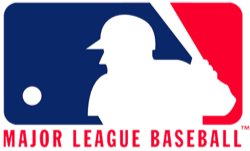 MLB’s collective-bargaining agreement with the players union is set to expire on Dec. 1, and reports indicate two huge issues remain to be resolved — but there’s still the chance 21 years of labor peace could be challenged next month.
MLB’s collective-bargaining agreement with the players union is set to expire on Dec. 1, and reports indicate two huge issues remain to be resolved — but there’s still the chance 21 years of labor peace could be challenged next month.
In theory, players could be locked out by on Dec. 1 if a new agreement is not reached between MLB and the players union, impacting trades and free-agent signings for the 2016 season. MLB Commissioner Rob Manfred isn’t threatening a lockout — yet — and says he’s still committed to a deal.
The issues, per Ken Rosenthal of Fox Sports, center around an international draft (opposed by the union) and the potential end to draft-pick compensation, with lesser issues to be resolved as well:
The competitive-balance tax — the amount of the threshold, the size of the penalties — is another point of contention. The two sides also are at odds over changes in the Joint Drug Agreement; a number of players spoke out in favor of a stronger program during the season, but for baseball to strengthen the agreement, the union wants concessions in other areas, sources said.
The owners’ proposal to end direct draft-pick compensation essentially would create unrestricted free agency in baseball for the first time. But the union strongly opposes an international draft, in part because foreign-born amateurs do not have the same leverage and opportunities as their U.S.-born counterparts, including college, sources said.
Under direct draft-pick compensation, a team loses a selection for signing a free agent who received a qualifying offer, which this year was valued at $17.2 million. Draft-pick compensation still would exist under the owners’ proposal, but only indirectly; a team that loses a qualified agent still would receive a bonus pick.
As one person on the players’ side put it: “We aren’t giving them something that affects 30 percent of big leaguers and probably 50 percent of minor leaguers in exchange for something that affects less than 20 players every year, especially guys who are staring $17 million in the face.”
An international draft has appeal for the owners, as it’s perceived as reducing labor costs at the top end of the development funnel at a time when MLB teams have been investing in development academies both in the United States and Latin America. But, as Rosenthal notes, free agency is the only leverage foreign-born players have.
